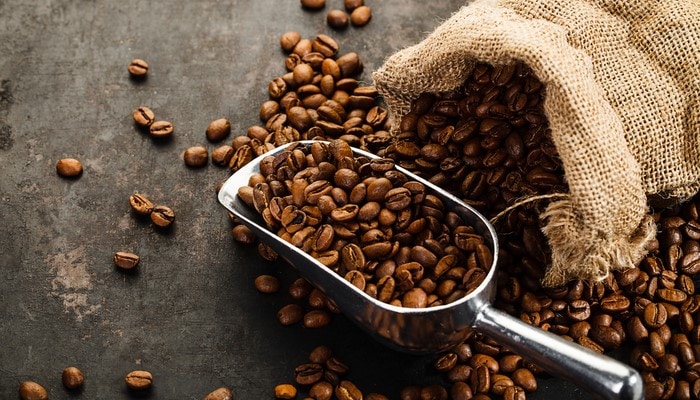Buying and Exporting Legumes from Rwanda – What You Need to Know
Buying and Exporting Legumes from Rwanda – What You Need to Know
The legume family is a group of plants that includes bean, pea and lentil varieties. This group offers some of the most nutrient-rich plant-based foods. Lentils, chickpeas and beans are all examples of legumes and can be purchased as ingredients for home cooking or as packaged raw or frozen vegetables for eating out. They are also sold canned or dried in packages. Most supermarkets stock these types of food in their own section, near the other vegetables and fruits. They can also be found in bulk bins at natural food stores and specialty markets like Indian markets and Middle Eastern markets. There are many different types of legumes available on the market today. Here is an overview of buying and exporting legumes from Rwanda
Buying Legumes in Rwanda
For most Westerners, legumes are associated with vegetarianism and veganism, but in many other parts of the world, they are an important part of the diet of meat-eaters and vegetarians alike. Legumes are a good source of protein, and they also provide a variety of other nutrients, including fiber and minerals such as iron and zinc. Legumes are also relatively inexpensive, which makes them accessible to many people who otherwise cannot afford other types of meat or protein-rich foods. Here are a few facts about buying legumes in Rwanda : – The types of legumes sold in Rwanda include beans, chickpeas, lentils, and peas. – Some varieties of beans grown in Rwanda are black beans, red kidneys, pinto beans and lima beans. – Lentils grown in Rwanda include yellow lentils, red lentils and green/French lentils. – Peas grown in Rwanda include both split peas and whole green peas. – Legumes are a good source of fiber. – Legumes are also a good source of protein. – Legumes are also a good source of minerals such as iron, zinc and calcium. – Legumes also contain B vitamins. – Legumes also contain vitamin E and folic acid. – Legumes have little fat.
Exporting Legumes from Rwanda
Legume exports from Rwanda have increased in the past years. Beans and peas are the major legume crops in Rwanda, with annual production of about 7,000 metric tons. The main export markets for legume crops from Rwanda are the United Kingdom and the United States. Domestic consumption of legume crops is about 6,000 metric tons, mainly from imports from Kenya, Uganda, and the Democratic Republic of Congo. To increase exports of legume crops from Rwanda, the government has put in place a variety of measures to improve the infrastructure for processing and exporting legume crops, such as building warehouses and improving the quality of legume crops by supplying seeds and fertilizer. The government of Rwanda is also investing in research and development to develop new varieties of legume crops that are better suited to the growing conditions in Rwanda.
Exporting Process for Legumes from Rwanda
There are a few different steps involved in exporting legumes from Rwanda. These include selecting the right variety of legumes and growing them during the right season, harvesting legumes at the right time, drying them to the proper moisture level, cleaning them, bagging them, and getting them ready to ship. If the legumes will be sold unprocessed, they need to be cleaned and bagged. If they are going to be processed into products such as flour, they do not need to be cleaned. Some of the legumes that are exported from Rwanda are green peas, red beans, yellow beans, black beans, and green/French lentils. These legumes are harvested in July and August, and after harvesting and drying, they are exported from port cities in Rwanda such as Kigali, Mwanza, and Bujumbura.
Things to be Aware of When Exporting Legumes from Rwanda
Legume crops are affected by many pests and diseases, such as pea aphids, obliqua (commonly called pea weevils), bacterial blight, Fusarium species, and Rhizoctonia species. Efforts to control pests and diseases of legume crops are done by applying insecticides and fungicides. Other efforts to control pests and diseases of legume crops include timely planting, rotating crops, and growing plants that are resistant to pests and diseases. When exporting legumes from Rwanda, it is best to buy legumes that are grown organically since legumes are particularly susceptible to pests. Exporting legumes from Rwanda that are grown using chemical fertilizers and pesticides may lead to those legumes being rejected by importers.
Beans
There are many different types of beans grown in Rwanda, including black beans, red kidneys, pinto beans, and lima beans. These can be purchased unprocessed as whole or split beans or processed as flour or baked goods. Beans have a rich and hearty taste, which makes them perfect for use in many different recipes. Beans come in a variety of colours, including red, black, green, and yellow. They are a good source of protein and fibre, and they are also a good source of iron, zinc, and calcium.
Peas
Rwandan peas are both split peas and whole green peas. Split peas are a good source of fibre and protein. Whole green peas are a good source of iron and calcium. Both split peas and whole green peas are often used in soups and casseroles.
Conclusion
Rwandan legume crops are a good source of protein and fibre, and they also provide a good source of minerals such as iron, zinc, and calcium. Growing legumes in Rwanda is a viable way to increase protein intake and lower the risk of chronic diseases such as cardiovascular disease and diabetes. Legumes have a low glycemic index, and they are also inexpensive to grow in Rwanda.








LEAVE A COMMENT
You must be logged in to post a comment.